The Flawless Order of the Universe Falsifies Claims That It Came About by Chance
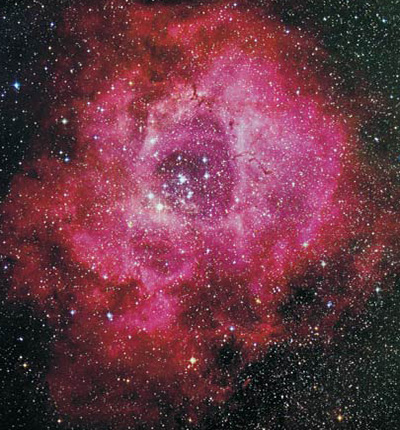 |
The universe with all its creations, both animate and inanimate, has a flawless design, unique systems, and an ordered balance that provide all the conditions necessary for living things to survive. Discoveries, especially those made in the 20th and 21st centuries, have shown that the flawless design of the universe is clearly the work of a supreme intelligence. It is God, with His supreme intelligence, limitless knowledge and eternal power, Who created the universe.
But this fact, established with clear proofs by 20th-century science, is ignored by those who have adopted the Darwinist-Materialist philosophy. Materialists may claim that the universe is the product of chance and chaos, but when we examine the flawless systems that functioned in forming the universe, not to mention the balance and harmony existing among its living things, we clearly see that it cannot be the product of chance.
In The Mysterious Universe, the English physicist Sir James Jeans describes the flawless order in the cosmos:
A scientific study of the universe has suggested a conclusion, which may be summed up ... in the statement that the universe appears to have been designed by a pure mathematician.2
Every planet in the universe, large and small, is the critically important part of a larger order. Not one of their positions in space or any of their movements is random. On the contrary, their countless details known to us so far have been created and especially adjusted for a particular purpose. Of all the innumerable factors influencing the balances in the universe, a change in the position of just one planet is enough to bring chaos. But these balances are never upset. The universe continues on, in its perfect order, with no problems. All of this is a result of God's supreme power in creation.
 |
| "'He Who created the seven heavens in layers. You will not find any flaw in the creation of the All-Merciful. Look again –do you see any gaps? Then look again and again. Your sight will return to you dazzled and exhausted!'' (Qur'an 67:3-4) |
Charles Darwin first proposed the theory of evolution, which suggests that all living things came into being by the mechanism of chance. But the universe's perfect design led even Darwin to admit that there is no room for chance in its creation. As he wrote:
This [conviction in the existence of God] follows from the extreme difficulty or rather impossibility of conceiving this immense and wonderful universe, including man with his capacity of looking far backwards and far into futurity, as the result of blind chance or necessity.3
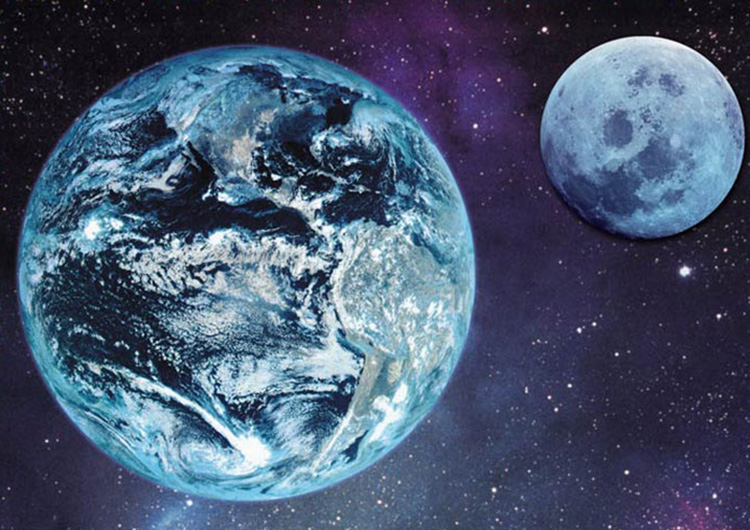 |
| "God, there is no god but Him, the Living, the Self-Sustaining. He is not subject to drowsiness or sleep. Everything in the heavens and the earth belongs to Him. Who can intercede with Him except by His permission? He knows what is before them and what is behind them but they cannot grasp any of His knowledge save what He wills. . . ." (Qur'an 2: 255) |
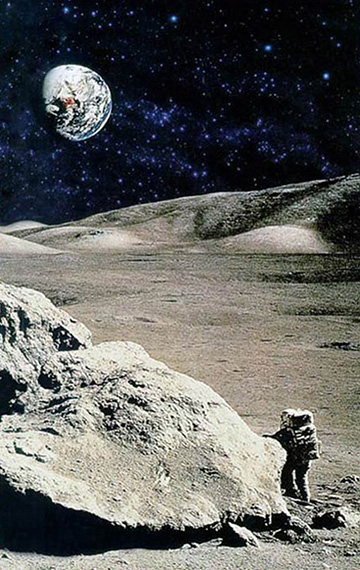 | 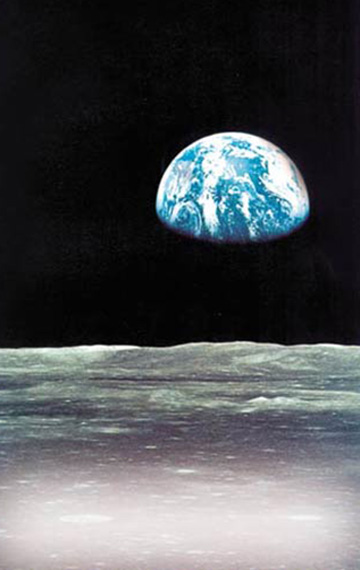 |
| "The Originator of the heavens and earth. When He decides on something, He just says to it, ‘Be!' and it is." (Qur'an 2: 117) | |
The distance between the Earth and our moon ensures many important balances and is extremely vital for the continuation of life on Earth. Indeed, the slightest variation in the distance between the two bodies could give rise to significant imbalances. For example:
◉ If the moon were much closer [to the Earth], it would crash into our planet, if much farther away, it would move off into space.
◉ If it were much closer, the tides that the moon causes on the earth would become dangerously larger. Ocean waves would sweep across low-lying sections of the continents.
Resultant friction would heat the oceans, destroying the delicate thermal balance needed for life on earth.
◉ A more distant moon would reduce tidal action, making the oceans more sluggish. Stagnant water would endanger marine life, yet it is that very marine life that produces the oxygen that we breathe.4
The Prophet Muhammad, peace be upon him, said:
O God: All the Praises are for You:You are the Lord of the Heavens and the Earth. All the Praises are for You:You are the Maintainer of the Heaven and the Earth. You are my only God [Whom I worship] and there is no other God for me [I worship none but You].5
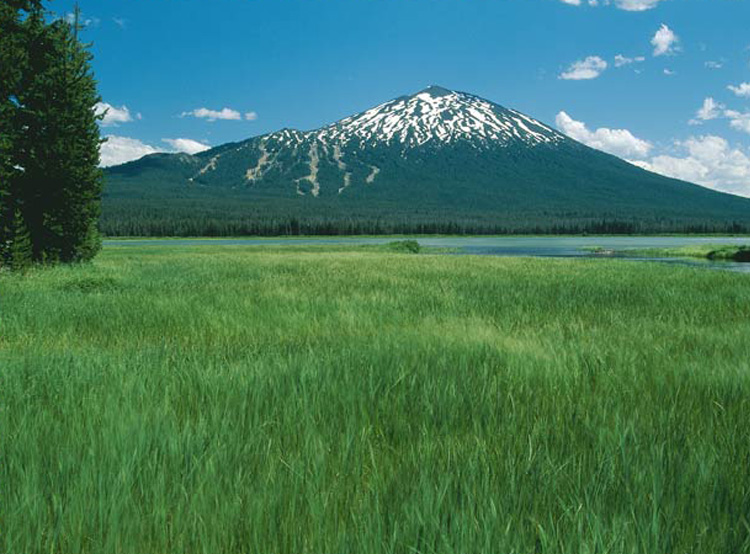 |
| "You will see the mountains you reckoned to be solid going past like clouds—the handiwork of God Who gives to everything its solidity. . . . " (Qur'an 27: 88) "And the earth: how We stretched it out and cast firmly embedded mountains onto it and caused luxuriant plants of every kind to grow in it." (Qur'an 50: 7) |
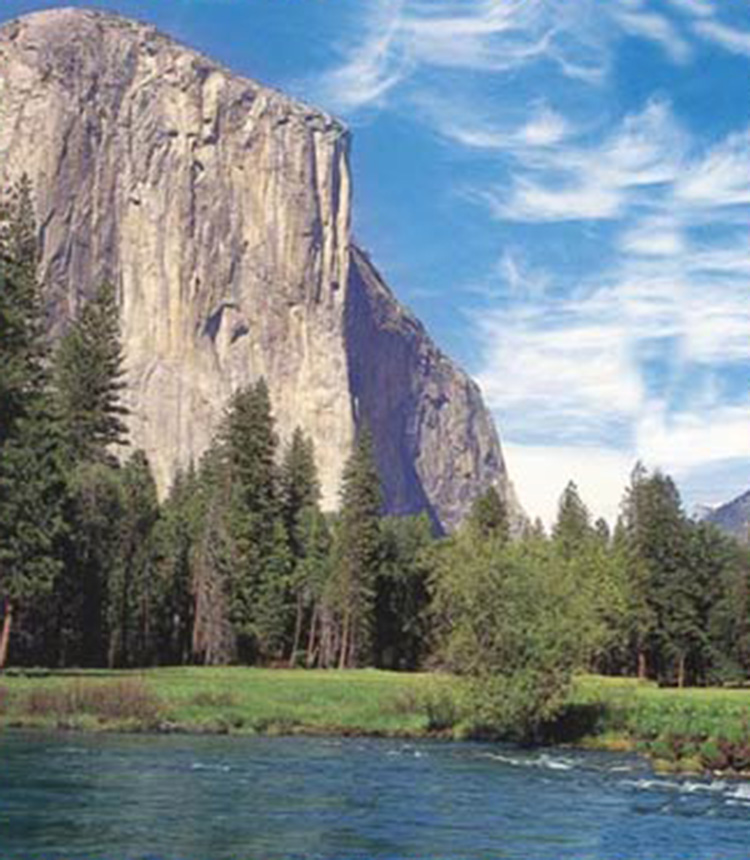 |
The distribution of heavenly bodies in the universe is designed exactly to conform to the needs of human life. In his book The Symbiotic Universe, American astronomer George Greenstein explains the importance of the huge voids in space and the distances between heavenly bodies:
All that wasted space! On the other hand, in this very waste lies our safety. It is a precondition for our existence. Most remarkable of all is that the overall emptiness of the cosmos seems to have no other consequence in the astronomical realm. Had the stars been somewhat closer, astrophysics would not have been so very different. The fundamental physical processes occurring within stars, nebulas, and the like would have proceeded unchanged. The appearance of our galaxy as seen from some far-distant vantage point would have been the same. About the only difference would have been the view of the night time sky from the grass on which I lie, which would have been yet richer with stars. And oh, yes—one more small change: There would have been no me to do the viewing.6
 |
| "This is God's creation. Show me then what those besides Him have created! The wrongdoers are clearly misguided." (Qur'an 31: 11) |
Contemporary philosopher Jean Guitton of the French Academy writes:
The first conditions that determined the basic constants of nature and the emergence of life were set in place with amazing exactness. To give an idea of how precisely the universe appears to have been constructed, it is enough to think of a golfer who can hit his ball from Earth to a hole on Mars! 7
 |
| "God is He Who raised up the heavens without any support—you can see that—and then established Himself firmly on the Throne. He made the sun and moon subservient, each running for a specified term. He directs the whole affair. He makes the Signs clear so that hopefully you will be certain about the meeting with your Lord." (Qur'an 13: 2) "Do you not see that everyone in the heavens and everyone on the earth prostrates to God, and the sun and moon and stars and the mountains, trees and beasts and many of mankind? But many of them inevitably merit punishment. . . ." (Qur'an 22: 18) |
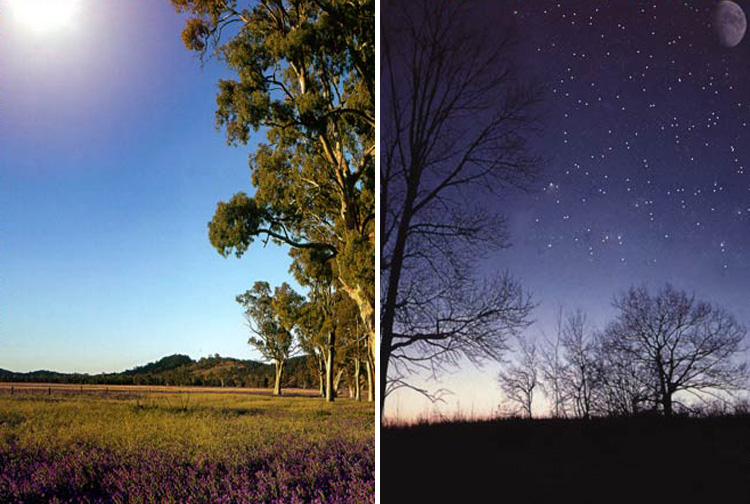 |
| "Do you not see how He created seven heavens in layers, and placed the moon as a light in them and made the sun a blazing lamp?" (Qur'an 71: 15-16) "In two days He determined them as seven heavens and revealed, in every heaven, its own mandate. We adorned the lowest heaven with lamps and guarded it. . . ." (Qur'an 41: 12) aldık)."(Fussilet Suresi, 12)
|
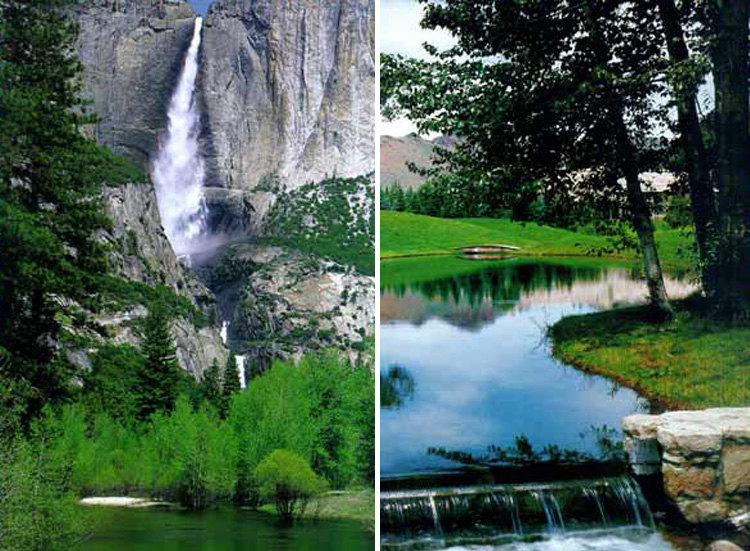 |
| "Did We not make the earth a receptacle for the living and the dead? Did We not place firmly embedded mountains in it, soaring high into the air, and give you sweet fresh water to drink?" (Qur'an 77: 25-27) "He sends down water from the sky and river-beds fill up and flow according to their size, and the floodwater carries a rising foam. . . ." (Qur'an 13: 17) |
If the laws of the universe allowed only the solid and gaseous states of matter, life would never have come into being. This is because the atoms in solid matter are compact, relatively motionless, and do not allow the dynamic molecular activity needed for living organisms to develop. The atoms in gasses have no stability and move freely, preventing the functioning of the complex mechanisms of living organisms.
In short, there must be a fluid environment for the functions necessary for life to develop. The most ideal fluid—rather the only ideal fluid—is water.
 | 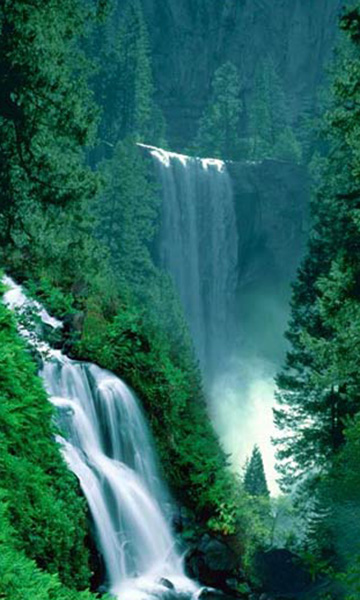 |
 |
The suitability of Earth's environment for the sustaining life is too wondrous to ever be explained by chance occurrences. Lawrence Henderson, a professor in Harvard University's department of biological chemistry, says the following in this regard:
The fitness... [of these compounds constitutes] a series of maxima—unique or nearly unique properties of water, carbon dioxide, the compounds of carbon, hydrogen, and oxygen and the ocean—so numerous, so varied, so complete among all things which are concerned in the problem that together they form certainly the greatest possible fitness.8
God has created the amount of water in the world in the way most appropriate for the survival of living things. The 18th century English natural scientist John Ray, writes the following in this regard:
 |
… [I]f there were but half the sea that now is, there would also be but half Quantity of Vapors, and consequently we could have but half as many Rivers as now there are to supply all the dry land we have at present, and half as much more; for the quantity of Vapors which are raised, as well as to the heat which raised them. The Wise Creator therefore did so prudently order it, that the seas should be large enough to supply Vapors sufficient for all the land.9
To claim that all these events resulted from chance events, a person would have to be completely deluded.
 |
The molecular biologist Michael Denton writes:
The fitness of water [for life] would in all probability be less if its viscosity were much lower. The structures of living systems would be subject to far more violent movements under shearing forces if the viscosity were as low as liquid hydrogen... If the viscosity of water was much lower, delicate structures would be easily disrupted . . . and water would be incapable of supporting any permanent intricate microscopic structures. The delicate molecular architecture of the cell would probably not survive.
 |
| "We pour down plentiful water, then split the earth into furrows. Then We make grain grow in it, and grapes and herbs and olives and dates." (Qur'an 80: 25-29) ". . . . Luxuriant gardens and orchards and meadows, for you and your livestock to enjoy." (Qur'an 80: 30-32) |
If the viscosity was higher, the controlled movement of large macromolecules and particularly structures such as mitochondria and small organelles would be impossible, as would processes like cell division. All the vital activities of the cell would be effectively frozen, and cellular life of any sort remotely resembling that with which we are familiar would be impossible. The development of higher organisms, which is critically dependent on the ability of cells to move and crawl around during embryogenesis, would certainly be impossible if the viscosity of water was even slightly greater than it is.10
 |
| "Have you thought about the water that you drink? Is it you who sent it down from the clouds or are We the Sender?" (Qur'an 56: 68-69) "Say: 'What do you think? If, one morning, your water disappears into the earth, who will bring you running water?' "(Qur'an 67: 30) |
Water is renewed in a continuous cycle, in a state ready to be used by plants, animals, and human beings. Due to the sun's influence, the Earth's water is purified by evaporation. Evaporated water condenses in the atmosphere, forming clouds, and falls to the earth again as rain. In one year, for example, it is calculated that roughly six to seven hundred million tons of water evaporates at the equator, rises into the atmosphere, is carried towards the North and the South Poles, and eventually returns to the seas again, in the form of rain.
If this transformation did not occur—that is, if water didn't evaporate and return to the earth, life would certainly come to an end.
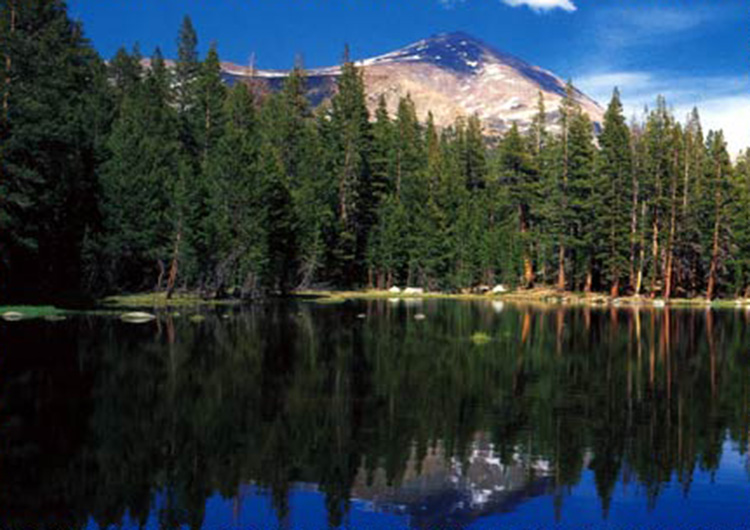 |
Footnotes
2. Sir James Jeans, The Mysterious Universe, New York: Macmillan Co., 1932/ Cambridge, England: University Press, 1932, p. 140
3. Francis Darwin, Life and Letters of Charles Darwin, Volume I, Chapter on "Religion."
4. Creation-Evolution Encyclopedia, http://www.pathlights.com /ce_encyclopedia/01-ma10.htm#Elemental Forces
5. Sahih Bukhari
6. George Greenstein, The Symbiotic Universe, William Morrow and Company, New York, 1989, p. 21
7. Jean Guitton, Dieu et La Science: Vers Le Métaréalisme, Paris: Grasset, 1991, p. 54
8. Lawrence Henderson, The Fitness of the Environment, Boston: Beacon Press, 1958, Foreword
9. John Ray, The Wisdom of God Manifested in the Works of the Creation, 1701; cited in Michael Denton, Nature's Destiny: How the Laws of Biology Reveal Purpose in the Universe, New York, The Free Press, 1998, p. 73
10. Michael Denton, Nature's Destiny, p. 33
- Introduction: It Doesn't Make Sense to Say, ''It Happened by Chance''
- Chance is Not a Deity: it is God Who is the Creator of All that Exists
- The Flawless Order of the Universe Falsifies Claims That It Came About by Chance
- God Has Created the Beautiful World of Plants
- God Is the Creator of All Things in Nature
- Human Beings Are Intelligent and Wilful Beings into Whom God Breathed His Spirit
- Works of Technology and Art Are All Examples of Design
- Conclusion: The Spell of the Theory of Change Is Broken
